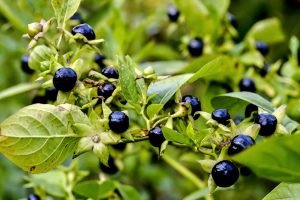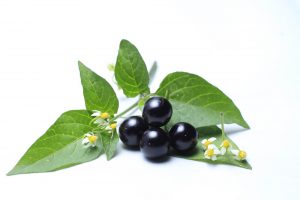
If you are living with arthritis, fibromyalgia, cancer, or another medical condition that causes chronic pain, actively avoiding things that make your pain worse is just as important as doing what you can to lessen the pain. That may mean avoiding activities or substances that could aggravate your condition, including certain foods. Many patients with chronic pain say eating nightshade vegetables makes inflammation worse, but is there any truth to this claim? Keep reading to learn more from the pain management specialists at AllCare Health & Pain.
What Are Nightshades?
Nightshades are a group of plants belonging to the family Solanaceae. Plants in this family often contain large amounts of alkaloids, which are chemical compounds containing at least one nitrogen atom and can have a range of effects on humans.
For example, quinine is an alkaloid used to treat malaria and other illnesses, while morphine and codeine are alkaloids that are often used as painkillers. There are also alkaloids with strong stimulant and psychoactive effects, such as caffeine, nicotine, and cocaine. Lastly, some alkaloids can be toxic in high concentrations, such as the alkaloids found in the belladonna plant (also known as deadly nightshade, which is where the family of plants gets its name). The specific alkaloids and their concentrations in the plant vary across the nightshade family, and most alkaloids have a strong bitter taste.
Some plants that are members of the nightshade family include:
- Potatoes (except sweet potatoes)
- Tomatoes
- Bell peppers
- Some varieties of hot peppers (jalapeños, serranos, red and green chile peppers, etc.)
- Tomatillo plants
- Eggplants
- Tobacco plants
- Belladonna
How Nightshades Can Affect People with Chronic Pain
The main reason some patients with chronic pain avoid nightshade plants is that many of them contain high concentrations of alkaloids, and some alkaloids can be extremely toxic. For instance, the belladonna plant and the stalks or stems of green potatoes contain toxic amounts of an alkaloid called solanine.
Speaking of solanine, there have been many patients who say eating plants with high levels of solanine aggravates their inflammation, especially for people with arthritis. However, there appears to be little scientific research to back up this claim. The Arthritis Foundation says there are no studies showing that solanine makes inflammation or pain worse.
While some alkaloids can be toxic, many alkaloids and other compounds found in nightshades can be extremely beneficial. For example, purple and yellow potatoes have high levels of antioxidants, which may reduce inflammation and prevent cell damage in the body. Some of the other health benefits of Nightshade plants include:
- Eggplants – Eggplants contain high levels of potassium, fiber, and vitamins B1, B6, and K.
- Tomatoes – Tomatoes contain high amounts of many beneficial compounds, including iron, zinc, potassium, biotin, and the antioxidant lycopene, which can help with inflammation and chronic pain.
- Potatoes – White, purple, and yellow potatoes contain healthy compounds including fiber, vitamin C, and vitamin B6.
- Peppers – Peppers in the nightshade family often contain high levels of folic acid, potassium, and vitamins A and C.
Should You Avoid Nightshades if You Have Chronic Pain?

At this point, there is little scientific evidence showing that nightshade plants make pain worse. While you should not eat belladonna or the stems and sprouts of green tomatoes, common nightshade plants like eggplants, peppers, and tomatoes contain beneficial organic compounds that may actually improve your pain.
Having said that, certain people may have food allergies or sensitivities that include nightshade plants. If you consistently feel worse after eating nightshade vegetables, try cutting them out of your diet for a few weeks and see what happens to your symptoms. If you notice a difference, you can adjust your diet accordingly. Otherwise, you may need to look for another cause of your symptoms.
How We Can Help if You Are Suffering from Chronic Pain
At AllCare Health & Pain, we believe in taking a holistic approach to helping patients manage their pain. We can help you find a diet designed to eliminate any potentially harmful foods while including foods that can help improve your condition. Along with medication, physical therapy, an exercise regimen, massage, and other techniques, a change in your diet could make a significant difference in your daily pain level.
Chronic pain should not get in the way of your daily life, and we want to help you manage your pain however we can. Call our pain management specialists at 201-386-9800 or visit our contact page to book an appointment.

